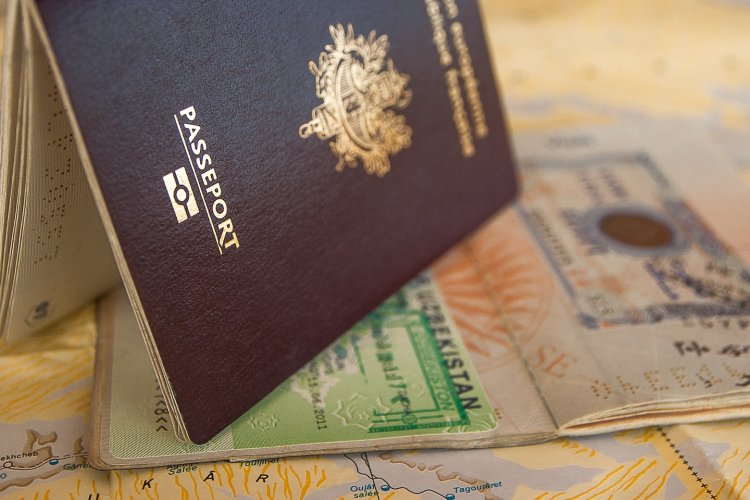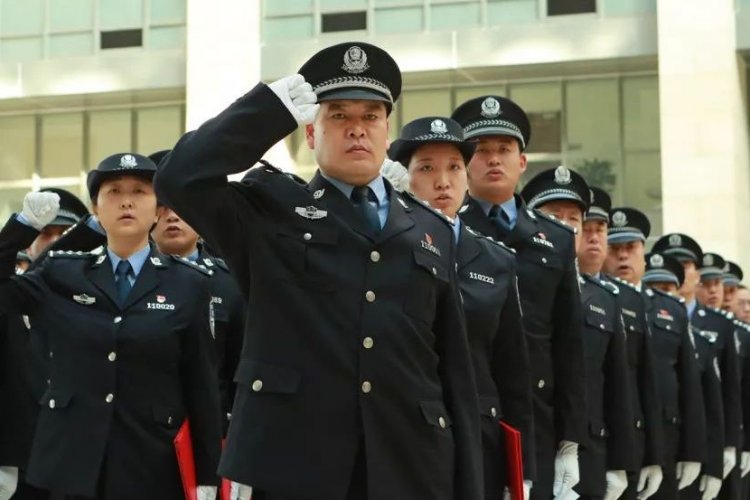Common Scams and Tips on What to Do When Life in China Goes Wrong
Ignorance of the law is no excuse in China, as in most countries. Here are some of the crucial rules that one should know (and not break), the rights that you have as a foreigner residing in Beijing, and other important information that you will need to navigate this city safely and avoid legal entanglements.
Registration
Foreigners must register their presence with the local police regardless of length of stay. Most hotels will automatically register their guests, while other places might require you to register at a place near where you are staying. If you are moving to a new neighborhood, or just moved in from outside of China, you must register at your local Public Security Bureau within 24 hours of your arrival. Each time you exit and enter the country on a valid visa, you must register within 24 hours at the police station.
Expired Visas
Staying in China on an expired visa can lead to deportation or being held indefinitely in a foreigners’ detention center while your deportation is being arranged. If your visa is about to expire you can apply for an extension at the PSB Exit and Entry Administration Office
Working on the Wrong Visa
Working on any visa other than a Z or R visa is illegal. It’s also illegal to work for any company other than the one which arranged your visa.
Driving
In order to drive a car in Beijing, you’ll need to pass a test here; an international driving license is not recognized. License plates which allow you to drive in central Beijing are strictly rationed, and allocated by lottery. Unless you have an urgent need to drive, you may find that Didi, taxis, and the city’s extensive public transport network are a better way of getting around. E-bikes are another convenient mode of transport, but there is currently a clampdown on bikes without pedals which are capable of speeds of over 20kph. They need to be registered at the Transportation Bureau and have number plates, and even this is a temporary measure; the expectation is that in two years’ time these bikes will be treated the same as motorbikes.
Drugs
In recent years there has been a stringent enforcement of China’s drug laws, with foreigners particularly targeted. This has included raiding bars and clubs and requiring all customers to take an on-the-spot urine test. Failing the test means immediate deportation with no appeal.
Common Scams
Violent street crime is almost unknown in Beijing. However, there are a couple of notorious scams often perpetrated against foreigners.
The Teahouse Scam
You are approached by a friendly, attractive young person who engages you in conversation, because they say they want to improve their English. They will invite you to a nearby teahouse or restaurant so that you can experience traditional Chinese cuisine and culture. Once you have been served, they will disappear, leaving you with a substantial check out of all proportion to the food and drink you’ve been given. Police are unlikely to be sympathetic, and you will have to pay up to extricate yourself.
Fake Road Accidents
In the event of a road accident, all parties are supposed to wait for the police to sort it out. However, if a foreigner is involved, it’s not unusual for a local to exaggerate their injuries and call on passers-by to take their side. What they are after, of course, is money. (Videos circulate on social media showing people deliberately walking into cars before falling spectacularly to the ground.) The police will often see themselves as mediators, sorting a payment so that everyone can get on with their day. Protesting your innocence may be less effective than haggling the smallest amount of money you can get away with (though you should never admit responsibility and leave yourself open to legal action.)
Know Your Rights: Maternity and Paternity Leave
Expectant foreign mothers and fathers are permitted a certain number of months of maternity/paternity leave. In 2016, maternity leave increased from 98 days to 128 days. At least 15 days of maternity leave is permitted for pregnancies less than 4 months that were aborted. At least six weeks of maternity leave is permitted for pregnancies lasting over four months that were aborted or resulted in miscarriage. Mothers on maternity leave will also either receive a maternity leave stipend or their usual salary. Fathers are permitted up to 15 days of paternity leave.
Marriage Leave
Unfortunately, the seven-day marriage leave that was once afforded to new couples was withdrawn in 2016. New couples are no longer guaranteed this seven-day leave, and companies that still award it do so out of tradition.
Prenatal Checkups
Beginning at 12 weeks, pregnant workers are entitled to paid leave for these checkups. The checkups will also be recorded in a pregnancy handbook given by the local Community Health Service Center. As with maternity leave, these policies can differ across China so be sure to look at the policy specific to your location.
Breastfeeding
Female employees are permitted one hour of breastfeeding time during every working day for a one-year breastfeeding period. It is common practice for employers to ask women to work the usual eight-hour workday and accumulate the one hour towards their vacation time. Women are also permitted to breastfeed in public without covering up.
Terminating Contracts of Pregnant Workers
It is illegal to terminate the contract of a pregnant worker during her pregnancy, maternity leave, or breastfeeding period (which lasts until the infant is one year old). If a worker becomes pregnant during her contract and that contract ends during her pregnancy, the contract will be automatically extended until the end of the breastfeeding period.
Withdrawing Social Security Upon Leaving
All foreign workers are required to contribute to social security in China. If you have contributed to a pension or social security fund in China for 15 years or more, you qualify for social security benefits. Foreigners that leave China before this 15-year period has been reached are entitled to recoup the money they have contributed to social security. In order to begin the process of withdrawing money, you must first be officially terminated from your place of employment in China. Following the termination, you should speak with your company about the appropriate procedures.
Lease Termination
A landlord that wishes to prematurely terminate the lease agreement must pay double the down-payment (usually one month’s rent) and double the security deposit (usually two to three months rent). This is roughly eight-months of rent. Tenants that prematurely terminate the lease agreement forfeit both the down-payment and the security deposit.
In Case of Emergencies: Theft/Missing Persons
Though Beijing is a very safe city, petty theft can be common.
Passports
If you lose your passport, report the theft at both the police station and the division of Exit/Entry Administration at the Beijing Municipal Public Security Bureau (or at the Exit/Entry department of the Public Security Bureau branch nearest to where the passport was lost). A new passport can be acquired at your embassy or consulate using the Confirmation of Passport Loss document. Don’t forget to apply for a new visa!
Stolen Property
In the event that your property is stolen, call the police on 110 and report the theft immediately. Then wait for the police to arrive and cooperate with them, which may include going to the station. If your Mandarin is not good, you may need a Chinese friend to go with you.
Missing Persons
A missing person's report can be filed 48 hours after that person's disappearance. The report can be filed both at your country’s embassy location in Beijing or at the local police department.
Embassies
You should locate the embassy nearest to your residence before arriving, and keep their contact information with you. Embassies often send out alerts or other important information that their citizens should know about while in Beijing. At the embassy, you can file a missing person's report and may be able to vote in your home country’s elections.
Emergency Numbers
Fire: 119
Police (Phone): 110
Police (Text): 12110
Police (English Emergency Hotline): 6525 5486
Ambulance (Chinese): 120
Ambulance (English) 999
Traffic Accidents: 122
Foreign Emergency Services: 6525 5486
Beijing Chaoyang District Center for Disease Control and Prevention: 6777 3512
United Family Hospital Emergency Services: 5927 7120
Raffles Medical Clinic and Emergency Services: 6462 9112
Raffles Medical Office: 6462 9199
Raffles Medical Assistance Center: 6462 9100
Now you know your scams, what about your birthmarks?
This article originally appeared on our sister site beijingkids.
Image: Wink News







